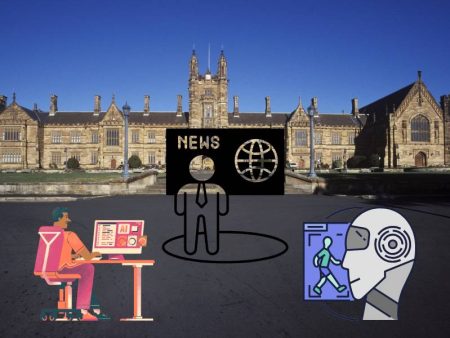Let’s start with something honest.
If you’ve ever stared at your screen for hours, doubting every sentence you typed in English because it just didn’t feel right—hey, you’re not alone.
I’ve been there. Well, okay… maybe not exactly there. English is my first language. But I have lived abroad, and I remember what it felt like to sit in a café in Paris trying to order a sandwich and being terrified of pronouncing jambon wrong. So, trust me, I get it—language anxiety is real. Especially when it’s your voice, your ideas, your message—only in someone else’s language.
Now, here’s the good part: we’re living in an age where tech can bridge gaps, especially in communication. Enter the AI writing assistant.
But wait—can these tools actually help non-native English speakers sound professional? Confident? Even a little witty?
Short answer: Yes.
Longer answer? Keep reading. I’ve got stories, awkward typos, honest opinions, and maybe even a dash of sass.
The Struggle: When the Words Don’t Match the Thoughts
Let’s talk about the elephant in the chat box.
If English isn’t your first language, you’ve probably had moments where you knew exactly what you wanted to say… but it came out sounding like it was written by a well-meaning alien who just discovered Microsoft Word.
And oh, the self-doubt that follows. Should I rewrite it? Is this grammatically correct? Does this sound smart enough?
Truth is, the way we judge someone’s intelligence and professionalism is often through their writing—especially online. And that can be incredibly frustrating if you’re a brilliant marketer, a sharp entrepreneur, or just someone who wants to write better emails without second-guessing every verb tense.
So the question becomes: How can you get your message across confidently, clearly, and without hiring an expensive editor every time you post on LinkedIn?
Meet the Modern Wingman: AI Writing Assistants
You know those friends who gently correct your grammar mid-sentence without making you feel dumb? AI writing assistants are kind of like that. Except they work 24/7, don’t get tired, and won’t secretly judge you for misusing “effect” and “affect” (we’ve all done it).
An AI Writing Assistant does way more than just fix your spelling. These tools can rephrase awkward sentences, enhance tone, suggest better words, and—this is the big one—help you sound like yourself in English.
They don’t just translate your thoughts. They transform them into something that actually resonates with your audience.
And the more you use one, the more confident you’ll get. It’s like training wheels, but for professional communication.
But Wait, Aren’t These Tools for Lazy Writers?
Oh boy. This is where I get a little fired up.
Let’s crush this myth right now: Using an AI assistant isn’t cheating. It’s smart. It’s resourceful. And if you’re not a native speaker, it’s a freakin’ lifeline.
Think of it like using a calculator in a high-stakes finance meeting. Nobody expects you to do long division in your head under pressure. Same goes for writing perfectly in a second (or third) language.
Besides, using an AI Content Generator or assistant isn’t about replacing your ideas. It’s about making sure your brilliant ideas aren’t getting lost in translation.
Real Talk: Where AI Shines (And Where It Still Fumbles)
Alright, let’s do some pros and cons—because you deserve the full picture, not just the tech-hype version.
✅ Where AI Writing Assistants are a game-changer:
- Grammar and sentence structure. No more awkward phrasing.
- Tone correction. Want to sound more formal? Or more casual? The assistant’s got your back.
- Clarity improvements. Sometimes you write a paragraph, and even you don’t understand what you meant. AI will help you cut through the noise.
- Instant feedback. No need to wait three days for your friend to review your email.
🚫 Where AI can still mess up:
- Cultural nuances. It might write a “perfect” sentence that just doesn’t hit right for your audience.
- Over-simplification. Sometimes the tools water down your ideas or make them sound generic.
- Voice inconsistency. It might not always reflect you—your humor, your quirks, your vibe.
So yeah, while these tools are seriously impressive, they still need a human touch. And that’s where you come in.
The Confidence Boost You Didn’t Know You Needed
One of the most underrated effects of using AI as a non-native speaker? Confidence.
When you stop agonizing over every sentence and start seeing your messages flow effortlessly, something shifts. You speak up more. You write faster. You stop apologizing for your English. (Seriously, please stop doing that. Your thoughts are valid, accent and all.)
It’s not about hiding your background. It’s about showing up clearly and professionally without being held back by the mechanics of grammar.
And honestly? The world needs your voice. Full stop.
But What About Plagiarism?
Ah yes, the boogeyman of AI tools. “But won’t it copy content from the internet?”
Good question. And it’s smart to be cautious.
The best tools today come equipped with a Plagiarism Checker, so you can make sure your writing is original. That’s especially important if you’re writing blog posts, academic papers, or anything that gets published online.
So if you’re using AI to write full articles or essays, make sure to double-check. Tools that flag similar content can save you from unintentional copying—and a lot of headaches down the line.
But remember: if you’re using AI to help rewrite your own thoughts or structure your sentences better, you’re still the original author. Don’t let anyone tell you otherwise.
A Quick Story (Because Linear Articles Are Boring)
A friend of mine—let’s call him Diego—moved to Berlin for a tech job. Brilliant developer. But when it came to writing emails or presenting in meetings, he froze up. Not because he didn’t know what to say, but because he was terrified of sounding “wrong.”
One day, I suggested trying an AI writing assistant. He was skeptical. (Honestly, I get it—tech can feel cold.)
But after a week of using it? Game-changer. He started writing faster. He sounded like himself, but polished. His confidence shot up, and eventually… he gave a full English presentation without notes.
Not perfect. But proud.
That’s the goal.
So… Can AI Help You Sound Like a Pro?
Absolutely.
But here’s the secret sauce: the best results come when you are still in the driver’s seat. Think of AI as your co-pilot—super helpful, kind of brilliant, but not in charge.
Use it to clarify, refine, enhance. Let it be the boost that helps your voice shine through. The point isn’t to sound like a native speaker. It’s to sound like you, with all the clarity and confidence you deserve.
And yeah, you do deserve it.
TL;DR (Because You’re on Mobile, I See You)
- AI writing assistants are super helpful for non-native English speakers
- They fix grammar, improve tone, and boost confidence
- They won’t steal your voice—they’ll help amplify it
- Use an AI Content Generator to speed things up, but always review and tweak
- Keep a Plagiarism Checker in your toolkit if you’re publishing content
- Your voice matters. Don’t let language barriers mute it.
Final Thought?
Sounding “like a pro” isn’t about perfect English. It’s about being clear, confident, and authentically you. AI can help get you there—but the magic? That’s all you.
So go on. Write that email. Launch that blog. Pitch that client.
You’ve got something worth saying—and now, you’ve got a tool that helps you say it even better.
Want a step-by-step guide on how to use AI writing tools for job applications or content creation in your field? Just say the word. I’ll hook you up.
And remember: Language isn’t a wall. It’s a bridge. Let’s cross it together.
✍️💬🌍


